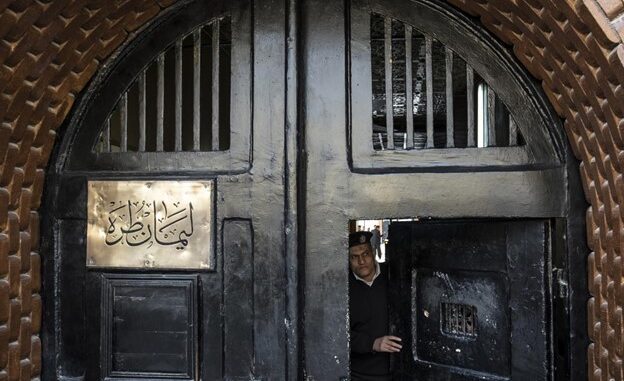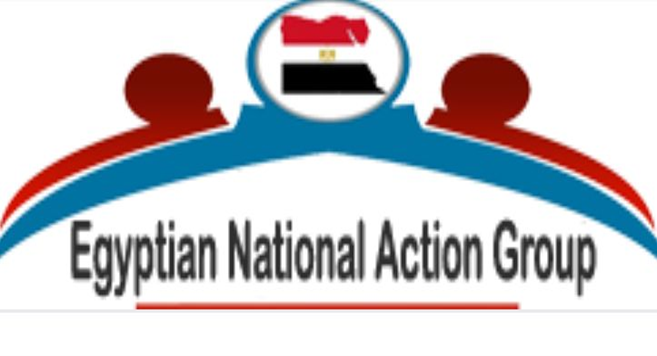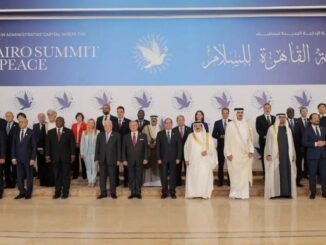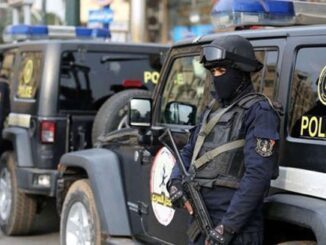
The Egyptian National Action Group (ENAG) has strongly condemned the Egyptian authorities’ recent arbitrary execution of 9 innocent citizens in the so-called Kerdasa Police Station events.

The Egyptian National Action Group (ENAG), including politicians from different Egyptian political backgrounds based both inside and outside Egypt, has issued a statement “condemning, using the strongest words, the Egyptian authorities’ arbitrary execution of 9 innocent citizens at dawn on Monday, 26 April 2021, in the case known in the media as the Kerdasa Police Station events”.
ENAG statement stressed the following:
– That these rulings are issued by the exceptional Terrorism Circuit Courts formed in violation of Article 97 of the Constitution, and therefore they are constitutionally and legally null.
– That these exceptional trials lack the lowest standards of justice, noting that in this specific case, the court has sentenced to death Abdel Rehim Gibril, an 80-year-old elderly man, although it has been proven that he was not present on the scene of events at the time; and a handicapped (a polio patient) who was arrested as a hostage to force his brother to surrender himself to the security authorities.
– That these rulings are politicized and aimed at terrorizing the Egyptian people, which foreshadows counter-terrorism the regime may create through the institutions it dominates.
In its statement, the pro-democracy, freedom and rule of law group, ENAG, called on:
First, the Egyptian regime: to activate the provisions of the constitution and stop carrying out politicized arbitrary death sentences, whose victims are estimated at 84 citizens so far.
Second, the United Nations Human Rights Council: to take the necessary procedures to oblige Egypt to stop carrying out death sentences, especially in political cases.
Third, the United Nations Security Council: to take a positive stance on the human rights issue, the death sentences in Egypt in particular, especially after 31 countries have condemned the human rights violations in Egypt.
Fourth, the countries that still support the Egyptian regime: to give priority to principles and values over interests, to save people’s lives and to stop more bloodshed.
The Egyptian National Action Group also called on all international organizations, particularly civil society organizations, to intensify their efforts, coordination and cooperation to stop implementation of other arbitrary executions, taking into mind that there are 58 innocent people awaiting the same fate.
Concluding its statement, ENAG extended sincere condolences to families of the victims, “praying that Allah Almighty may accept them as martyrs and grant patience and solace to their families”. “May Allah protect Egypt and its great people,” ENAG concluded.
According to Amnesty International, one of the men executed on Monday was an 82-year-old who local media identified as a Quran teacher in poor health.
Online, many social media users used the deceased man’s name, Sheikh Abd al-Rahim Jibril, to highlight his execution and demand justice.
Jeed Basyouni, head of the MENA team at Reprieve, a UK-based NGO, called the executions an act of “extraordinary cruelty” as they took place during Ramadan, one of the holiest and most revered months in the Islamic calendar.
“Executing these men without warning during Ramadan is an act of extraordinary cruelty, but by now, the Sisi regime’s contempt for its international laws and norms comes as no surprise,” according to Middle East Eye.
“This is the latest escalation in Egypt’s death penalty crisis that has seen record numbers of people executed and sentenced to death. Western states cannot continue to turn away from the grave human rights abuses committed by their Egyptian ally,” she added.
According to the Arab Organization for Human Rights (AOHR), a UK-based rights NGO, the identities of those who raided the police station remain unknown and there has been no concrete evidence linking the 17 men who were executed to the incident.
“Many of the testimonies were extracted under torture, and are therefore inadmissible,” a statement from the organization said.
AOHR also stated that the executions were part of a wider campaign of repression against critics of Egyptian President Abdel Fattah el-Sisi.
“Dissidents in Egypt suffer serious violations since the moment of their arrest, followed by subjecting them to enforced disappearance and denying them communication with the outside world,” the statement read.



